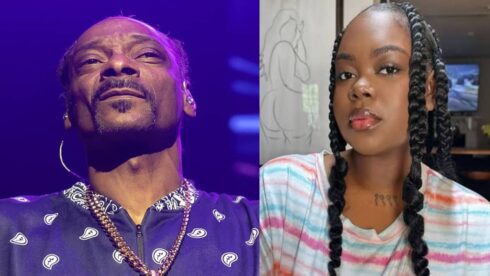Chlöe Bailey, one half of the R&B duo Chloe x Halle, has spoken out about the music industry’s racial bias, stating that her music would be considered pop if she weren’t a Black woman. In a recent interview, Bailey shared her thoughts on the genre classification of music, saying “Music has no race, it has no genre, it has none of that. It’s just a feeling and it’s a vibration.” This statement highlights the ongoing issue of racial categorization in the music industry.
Bailey’s comments have sparked a conversation about the ways in which race and genre intersect in music. While some argue that genre classification is necessary for marketing and branding purposes, others see it as a way to pigeonhole artists and limit their creative potential. Bailey’s statement emphasizes the importance of considering music as a universal language, rather than a racial or cultural identifier.
Music Industry’s Racial Bias: A Long-Standing Issue
The music industry’s racial bias is a long-standing issue that has affected many artists of color. Genre classification can often be a barrier for artists who don’t fit into traditional categories, leading to limited opportunities and exposure. Bailey’s experience is just one example of how racial bias can impact an artist’s career.
Artists like Bailey are pushing back against these limitations, advocating for a more inclusive and expansive understanding of music. By challenging traditional genre classifications, these artists are creating new possibilities for themselves and others.
Chlöe Bailey’s Music: A Blend of Genres and Emotions
Chlöe Bailey’s music is a blend of genres and emotions, defying traditional classification. Her unique sound is a reflection of her artistic vision and personal experiences. Bailey’s music is a testament to the power of creativity and the importance of staying true to one’s art.
Bailey’s approach to music is an inspiration to many young artists who are looking to break into the industry. Her success is a reminder that music can be a powerful tool for self-expression and connection.
Breaking Down Genre Barriers: The Future of Music
The music industry is on the cusp of a revolution, and artists like Chlöe Bailey are at the forefront of the change. By defying traditional genre classifications and embracing a more inclusive understanding of sound, these trailblazers are paving the way for a more vibrant and diverse musical landscape. As the industry continues to evolve, it’s clear that the future of music is about breaking down barriers and pushing the boundaries of what’s possible,with her unique sound and unwavering dedication to her art, Chlöe Bailey is a shining example of the future of music.
By refusing to be confined by traditional genre labels, she is creating a new path for herself and others to follow. Bailey’s music is a testament to the power of creativity and self-expression, and her success is a reminder that the music industry is ripe for disruption.
As the music industry continues to evolve, it’s clear that the future is about more than just genre classification. It’s about embracing inclusivity, creativity, and self-expression. Artists like Chlöe Bailey are leading the way, and their music is a reflection of the power and diversity of the human experience. With its universal language and vibration, music has the ability to unite us all, and the future of music is brighter than ever.
Chlöe Bailey’s Message: Music is a Universal Language
Chlöe Bailey’s message is clear: music is a universal language that has the power to unite us all. Her encouragement to fans to embrace the vibration of music is a reminder that music is about more than just genre or classification. It’s about the feeling and the connection that it creates.
Bailey’s message is an inspiration to many, and her music is a testament to the power of creativity and self-expression. As the music industry continues to evolve, it’s important to remember the importance of staying true to one’s art and embracing the universal language of music.














